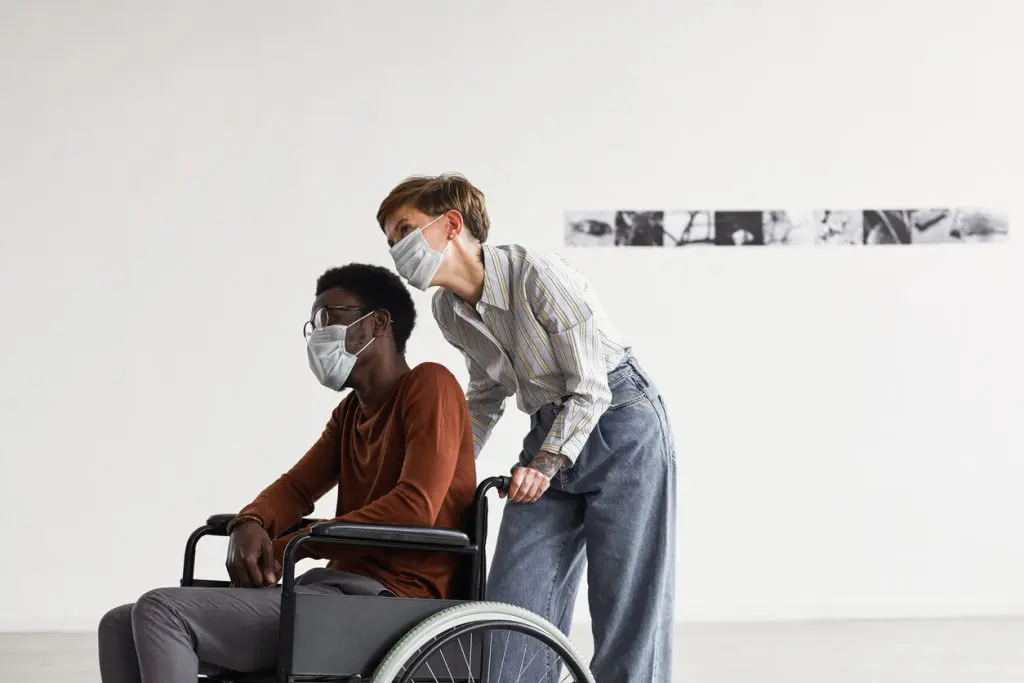“Operatori culturali per l’inclusione” (Cultural operators for inclusion) is the project by Fondazione CRT and Fondazione Paideia to improve the knowledge and relational and professional skills of cultural service operators in welcoming visitors with disabilities and/or special needs, thus disseminating a culture of inclusion.
The project, which was launched in 2012 under the name “Museum Staff and Disabilities” and was specifically aimed at museum institutions, chooses a new name on the occasion of its tenth anniversary to highlight that, thanks to the positive pilot training experience at OGR – Officine Grandi Riparazioni, the courses are aimed for all cultural institutions staff and not only the museum staff.
An important expansion of the target audience in line with the Goals of the 2030 Agenda for Sustainable Development and the first Disability Agenda in Italy and the result of a joint planning process initiated by Fondazione CRT and CPD – Consulta per le persone in difficoltà.
The choice of the new name is the result of constant dialogue with the cultural actors, in line with the participatory approach that has always been the basis of the project.
41 basic courses, 31 in-depth thematic seminars, 8 courses of first literacy in Italian Sign Language applied to the museum context, 6 workshops on the creation of social stories, 1 workshop to learn about the best practices of the territory, 13 experiences of replicability of the Turin model at national level, have been created in ten years, since the launch of the first edition.
In total, about 300 museums and local and national cultural services, as well as over 1,100 cultural operators participated in the project.
TRAINING OBJECTIVES
To improve knowledge about disabilities. When we talk about disabilities in general, we tend to include in the same category characteristics that are sometimes far apart and that require completely different relational approaches. The first step in order to improve awareness and overcome misconceptions or prejudices is knowing the different disabilities and their respective needs.
Managing better communication with all visitors. Meeting “special” needs by adapting the museum’s relational, communication and reception skills, i.e. by qualifying the operators, makes the structure as a whole more flexible and able to better manage communication with all users, making the structure truly inclusive and integrated.
Qualifying public communication. The perception that results from a visit experience also contributes to the formation of a general opinion about the city and the area as a whole. This perception also depends on the intangible elements of communication and interaction with people one encounters and, often, is what determines the degree of reception of a place or facility, leaving a good or bad memory depending on the case. Interacting correctly with people with disabilities is a key element of correct and effective public communication.
The aim of the course is to improve the relational and professional skills of cultural service providers in order to promote inclusion and welcome culture.


